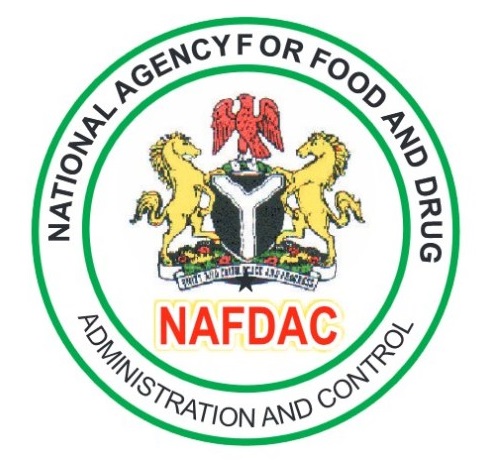
The attention of the National Agency for Food and Drugs Administration and Control (NAFDAC) has been drawn to a publication in the Punch Newspapers of 28th December 2019 titled “Port congestion worsens as NAFDAC conducts E-certification”. The content of the publication especially with regard to the comments made by The National Secretary of the Association of Nigerian Licensed Customs Agents (ANLCA), Mr Babatunde Mukaila are completely untrue, baseless and a bid to mislead the general public on the clearance of products at the various seaports.
As part of ongoing modernization reforms by the Federal Government of Nigeria at the ports, NAFDAC has assiduously worked towards the automation and digitization of NAFDAC processes and licenses respectively. This has resulted in the development and deployment of NAFDAC e-licenses for utilization in the clearance of NAFDAC regulated products.
Prior to the deployment of the e-license on 9th September 2019, NAFDAC had held sensitization workshops for importers and Authorized Dealer Banks (ADBs) in 2018. This was to prepare importers of NAFDAC regulated products on the need to digitize any documents that were not in electronic formats while the processes for the issuance of new NAFDAC licenses was automated and processed on the Federal Government Single Window for Trade which is a one-stop portal for various Agencies operating at the Ports.
In the past, NAFDAC documents were physically scanned and attached to the Central Bank of Nigeria Form M platform. As a result of this, the ADBs and the Nigeria Customs Service (NCS) were not able to verify and authenticate submitted NAFDAC documents. This gave room for unscrupulous importers to forge and use expired NAFDAC licenses to process their Form Ms. With the commencement of the e-license era, NAFDAC integrated her licenses with the Form M platform such that importers are no longer required to scan and attach NAFDAC licenses but only input their Approval Reference Numbers which would be auto-verified by the Form M platform during processing. As a result, many importers who were used to utilizing unapproved licenses could not process their Form Ms.
It is also important to note, that it is against the Federal Ministry of Finance Import Guidelines, Procedures and Documentation requirements under the Destination Inspection Scheme to ship any consignment without opening Form M. Form M cannot be validly opened when you do not have a valid license from the Agency regulating the product. Those in this predicament have been violating this Import procedure for years and they are now caught up because of this integration. It is therefore, misleading, deceptive and baseless for any importer or agent alluding the congestion at the Ports to the e-certification processes of NAFDAC. Indeed, this is a means of perpetrating evil and attempt to continuing in dirty and unscrupulous procedures in clearance of regulated products. Their attempts can be considered as frustrating trade facilitation.
For clarity, the Import Guidelines states in A1 and A14 that
A1: ‘Any person intending to import physical goods into Nigeria shall in the first instance process e-Form M through any Authorized dealer bank irrespective of the value and whether or not payment is involved.’
A14: All imports into the country shall be accompanied by the following documents:
The unanswered questions from the statements made by the ANLCA National Secretary are;
These are questions begging for answers.
It is worthy of note that any compliant importer of NAFDAC regulated products having approved NAFDAC e-licenses and has followed the approved Federal Ministry of Finance Import Guidelines, Procedures and Documentation requirements under the Destination Inspection Scheme will not complain about NAFDAC’s Introduction of e-licenses.
We appreciate Dr Osita Chukwu for speaking the truth with regard to this issue and clearly stating in the publication that ‘agents and importers failed to do what they are supposed to do…..and most of them would leave many things unattended to because they wanted to cut corners.’ Aside this, there are several factors that are beyond the purview of NAFDAC that has led to port congestion over the years. It is therefore unfair to lay the blame of port congestion at NAFDAC’s doorstep.
NAFDAC as a responsible regulatory Agency has determined to facilitate trade and comply with the Federal Government’s reform agenda for the various ports. Our current drive is to encourage compliance, be customer-focused and improve the ease of doing business while ensuring that safe and quality regulated products are available for Public Health use.
It is therefore important that all importers and the general public discountenance this obvious falsehood in the publication.
Published: February 8, 2020
DATELINEHEALTH AFRICA INC., is a digital publisher for informational and educational purposes and does not offer personal medical care and advice. If you have a medical problem needing routine or emergency attention, call your doctor or local emergency services immediately, or visit the nearest emergency room or the nearest hospital. You should consult your professional healthcare provider before starting any nutrition, diet, exercise, fitness, medical or wellness program mentioned or referenced in the DatelinehealthAfrica website. Click here for more disclaimer notice.